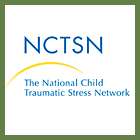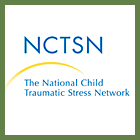Safety
“Changing the Way We Talk to Teens About Tragic Events” is an article about some strategies for talking to teens about mass shootings, terrorism or unexpected attacks.
Sesame Street in Communities is an online community for sharing Sesame Street’s free educational resources with the adults in children’s lives.
The Child & Adolescent Health Measurement Initiative (CAHMI)’s mission is to promote the early and lifelong health of children, youth, and families. Part of fulfilling this mission is to disseminate data, information, and ideas to understand and address social determinants of health, like adverse childhood experiences and the trauma and chronic and toxic stress that can result and impact lifelong health. A primary focus is on promoting the development of positive health, such as resilience, engagement in life, and the safe, stable, and nurturing relationships most essential to child development and well being.
The National Child Traumatic Stress Network recently came out with a child trauma toolkit for educators.
This factsheet discusses the nature of trauma, its effects on children and youth, and ways to help your child. By increasing your understanding of trauma, you can help support your child’s healing, your relationship with them, and your family as a whole.
After tragedies, kids will have questions. How do we respond?
This article is about “how trauma is changing children’s brains”.
Spot signs of trauma, and learn how you can help.
This article is about how teachers help students who’ve survived trauma.
This article gives educators five ways to help students in trauma.
Bright Horizons Director Brendamarie Contreras shares tips on how to talk to young children about the Boston Marathon bombings.
Established by Congress in 2000, the National Child Traumatic Stress Network (NCTSN) brings a singular and comprehensive focus to childhood trauma. NCTSN’s collaboration of frontline providers, researchers, and families is committed to raising the standard of care while increasing access to services. Combining knowledge of child development, expertise in the full range of child traumatic experiences, and dedication to evidence-based practices, the NCTSN changes the course of children’s lives by changing the course of their care.











